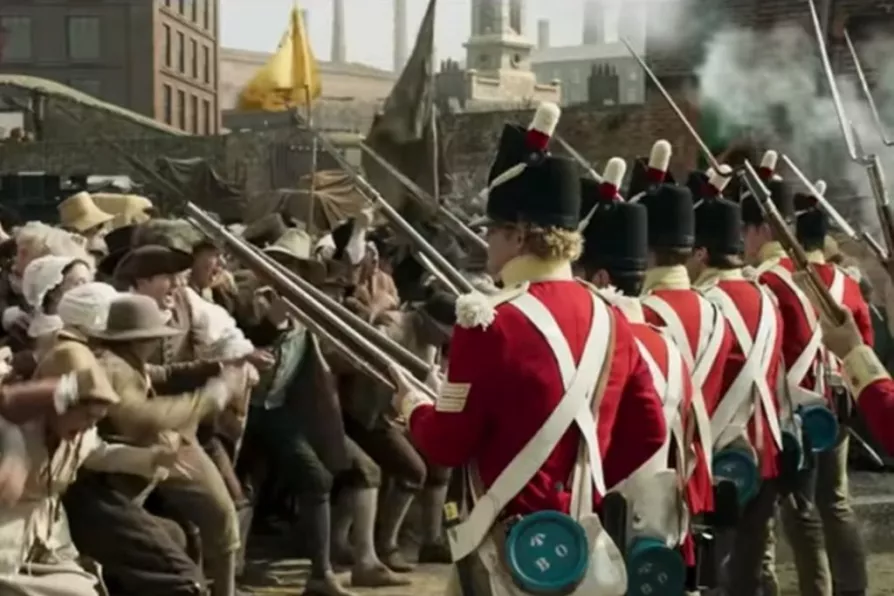ELEANOR DOBSON reflects on a stark visual record of the violent desecration of Tutankhamun’s mummified remains
Telling insights into ‘the war on the principles of liberty’
ANDY HEDGECOCK recommends a revelatory new history of the Peterloo Massacre

 Moments from a massacre: Still from Mike Leigh’s film Peterloo
Moments from a massacre: Still from Mike Leigh’s film Peterloo
Peterloo
by Robert Poole
(Oxford University Press, £25)
ACADEMIC analysis of Peterloo has been surprisingly scarce, so Robert Poole’s new book is welcome in shedding new light on the events of August 16, 1819, in this bicentenary year of “The English Uprising.”
Revealing a complex set of influences, Robert Poole rejects the notion that the Peterloo massacre occupies a point on a continuum with repression at one end and reform on the other.
Similar stories

Peter Mitchell's photography reveals a poetic relationship with Leeds

Ben Cowles speaks with IAN ‘TREE’ ROBINSON and ANDY DAVIES, two of the string pullers behind the Manchester Punk Festival, ahead of its 10th year show later this month

JOHN GREEN surveys the remarkable career of screenwriter Malcolm Hulke and the essential part played by his membership of the Communist Party

ANDY HEDGECOCK relishes two exhibitions that blur the boundaries between art and community engagement










